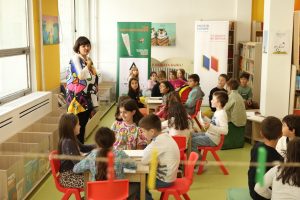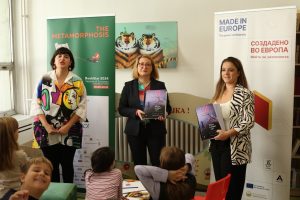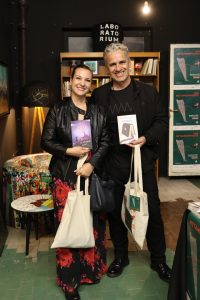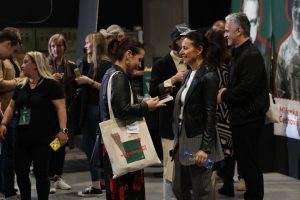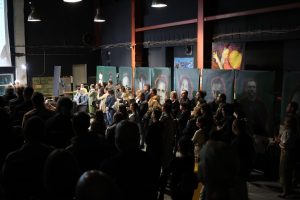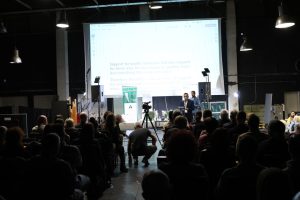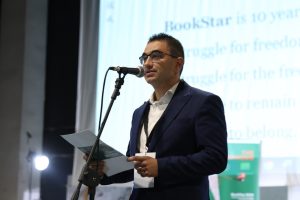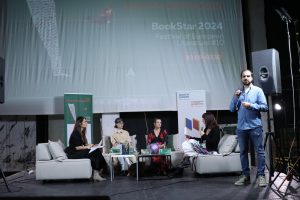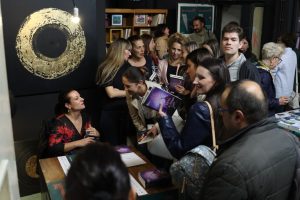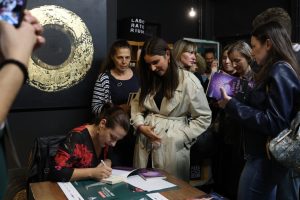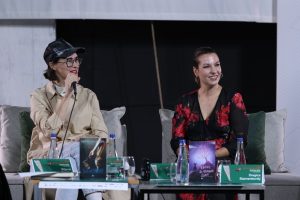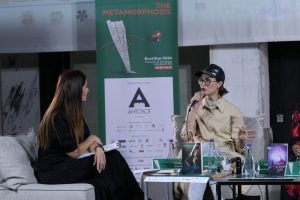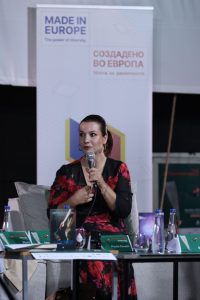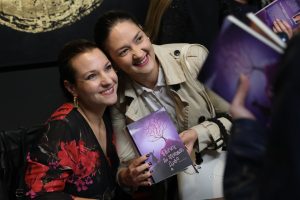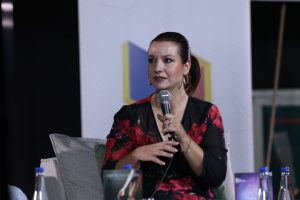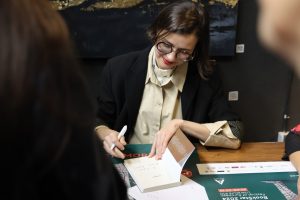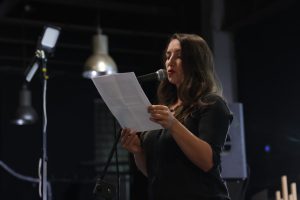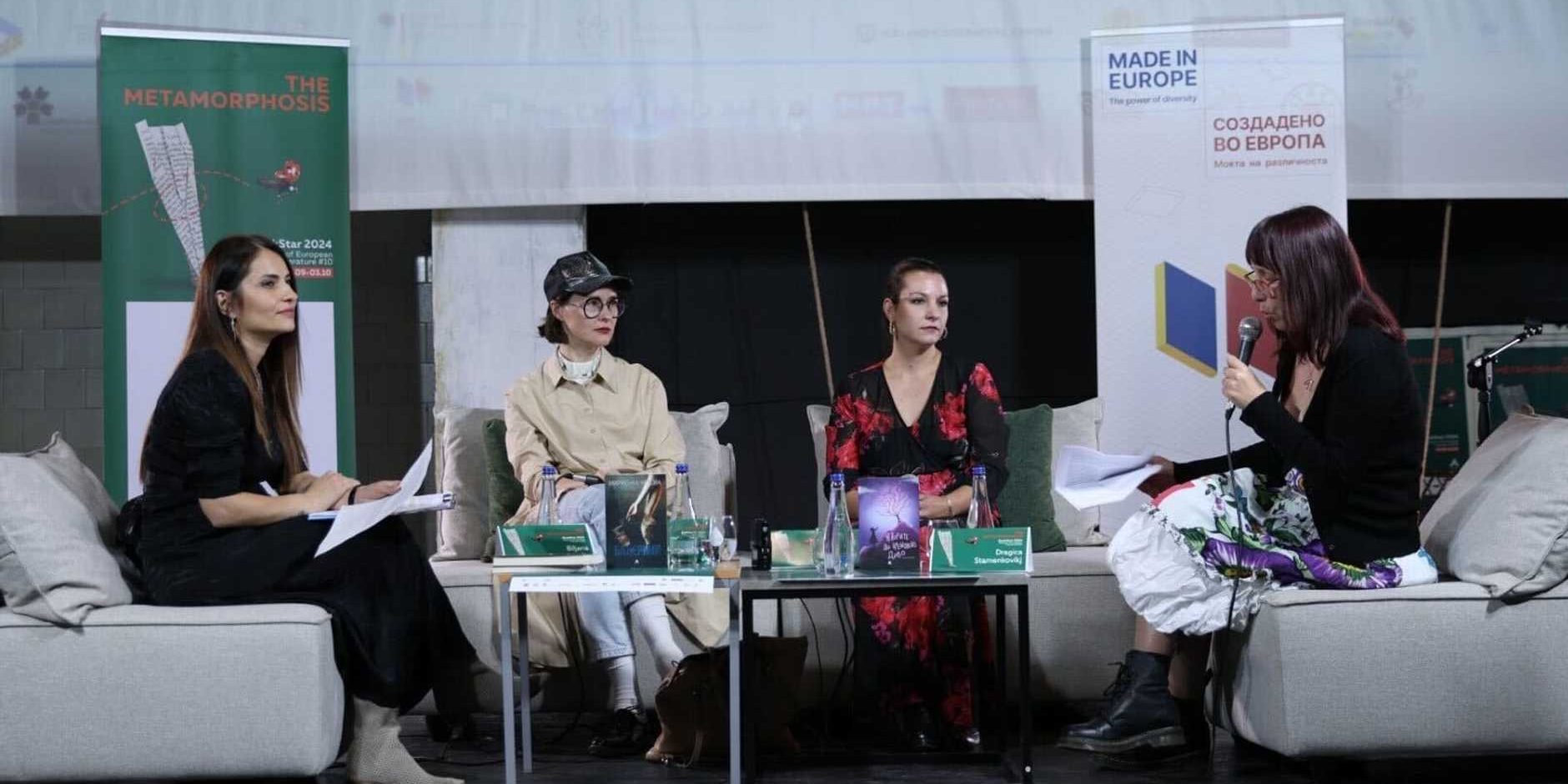PACKED HALL FOR THE OPENING OF THE ANNIVERSARY EDITION OF "BOOKSTAR"!
October 1, 2024, Skopje - "Bookstar" is ten years of inspiration. Inspiration for writers, for readers, for the silenced and inspiration for the forgotten - this was stated by the organizer of the festival and editor-in-chief of "Antolog", Žarko Kujundjiski, at the official opening of the tenth, jubilee edition of the festival of European culture "Bookstar", which is held last night in "Laboratorium".
In front of numerous guests, writers, poets, translators, publishers, as well as lovers of the written word, Kujundjiski addressed the importance of this festival, which has been going on for a decade.
- Who did "Bookstar" inspire? First of all, all of us here, from the hardworking teams behind the festival, to the entire literary, media and social public. But it also inspired the guests from every corner of Europe. Ilya Leonard Pfeifer will create an entire part of his capital novel "Grand Hotel Europe" after his stay at "Bookstar". It also inspired the inimitable Slavoj Žižek to compile the collection of essays "An Ashtray in a Hotel in Skopje". It inspired Slavenka Drakulić's columns and many thanks from everyone when they left here with a full soul - said Kujundjiski.
The festival was declared open by the Macedonian writer Rumena Bužarovska, who in her speech emphasized the importance of our language, which is spoken by a small part of the world's population, and over the years we have managed to create entire literary worlds from that "small language".
– Тo exist within a small language without a tremendous written tradition can be advantageous. We simply do not carry the burden of century-old literary traditions. We do not carry the burden of comparison, we do not carry the burden of all that has been invented and written before us, so much that there is little left for anything new. In fact, it is we who enjoy the liberty of invention. It is we who invent language and build the foundations of culture, it is we who can imbue language with new meanings. This is where we are now: where no one has been before, the space of an infinite horizon.- said Bužarovska.
In her important speech, Bužarovska addressed the problems in literature and translation, about the (un)profitability and luxury of being part of this art.
- As one of the smallest countries in the federation, with a language codifed in 1945, I can testify that our generation, and those before it, grew up with the idea that Macedonian litrerature and Macedonian translations were inferior to those of the Serbo-Croatian and the Russian languages. In other words, there was the persistence of the often-heard complaint that our literature is boring and not worthwile reading, that it does not speak to the new generations, and that there is no such thing as a good Macedonian translation. Thus, of course, one should not waste time reading and bying the Macedonian editions of the classic and contemporary world classics. What these generations unfortunately forgot to take into consideration, wallowing in a somewhat pitiful state of self-hatred, was that in the early years of our education we were nurtured by the works of authors such as Olivera Nikolova, Vančo Nikoleski, Vidoe Podgorec and Boško Smakjoski, works which we loved, and works that gently and playfully formed our sense of culture, language and identity. They seemed to forget that in just three or four decades, hundreds of classics had been translated into Macedonian, and that a relatively small group of people tirelessly and devotedly worked towards expanding our world through language and literature: I will here just mention Bogomil Gjuzel, Dragi Mihajlovski and Vlada Urošević, writers and translators who singlehandedly managed to shape the imagination of entire generations – said Bužarovska.
The theme of the first literary evening was trauma and perseverance, and the audience had the opportunity to hear a conversation with the authors Paola Peretti from Italy and Miřenka Čechová from the Czech Republic. The event was moderated by Biljana Crvenkovska and Dragica Stamenković.
"In literature, trauma often serves as a critical lens through which characters' perseverance is viewed. Authors portray trauma as a profound force that challenges and shakes the characters' psychological and emotional stability, shaping their narratives. This not only emphasizes the catharsis that follows but sheds light on their resilience.” This was the central theme of the conversation among the participants.
Вечерта заврши со диџеј-сет на Ogipsilon/Sure Shotz.
На првиот фестивалски ден се одржа и креативна работилница со Ана Голјешка-Џикова во градската библиотека „Браќа Миладиновци“, како и два поткаста, кои ги водеше Душко Крстевски, а гости беа Жозе Луиш Пејшото од Португалија и Здравка Евтимова од Бугарија.
Today on the program
During the second day of the festival, the guests will have an informal tourist tour with Vasko Markovski, and at 12:00 in the Skopje City Libary "Brakja Miladinovci" there will be a literary reading "Преобразба(та)"/"The metamorphosis", where multiple authors will be presented. Foreign participants are Kristijan Novak (Croatia), Faruk Šehić (BiH), Zdravka Evtimova (Bulgaria), José Luís Peixoto (Portugal), Miřenka Čechová (Czech Republic), and the local ones will be Olivera Kjorveziroska, Vasko Markovski, Biljana Stojanovska. , Živko Grozdanoski and Ana Golejška-Djikova.
The author Paola Peretti from Italy will hold a creative workshop, and a podcast with Kristian Novak from Croatia and Jón Kalman Stefánsson from Iceland will be held by Duško Krstevski.
The central event "Balkan (K)nights" will start at 19:30 in "Laboratorium", and the conversation will be conducted between the authors Kristian Novak (Croatia), Rumena Bužarovska (Macedonia), Faruk Šehić (BiH) and Igor Marojević (Serbia). The moderator will be Vladimir Jankovski.
The evening will end with a literary stand-up performance by Marjan Georgievski.
The festival is held under the slogan "The Metamorphosis" and is supported by the Ministry of Culture and Tourism of the Republic of North Macedonia, the literary network Traduki, EU with YOU, the Embassy of the Czech Republic and Republic of Italy, the Cultural and Information Center of the Republic of Bulgaria in Skopje, the Italian Institute of Culture in Belgrade, the Icelandic Literary Center and the "Camões" Language and Cooperation Institute. The media sponsor is the Macedonian Radio Television. The visual identity is the authorship of Maja Plačkoska, who also produced the festival video.
Follow us on:
Website
@bookstar_festival
@antolog_mk
Youtube
https://www.youtube.com/channel/UCPMeZZYy8_NAAGJ4bUR3OeA
